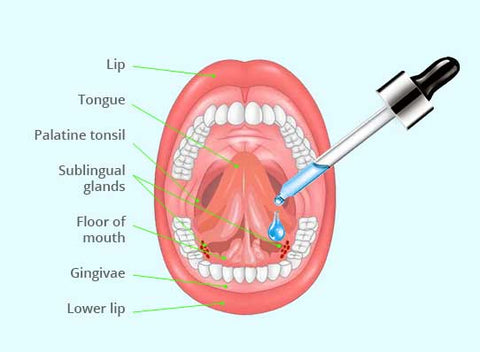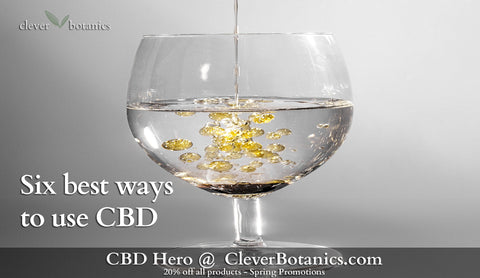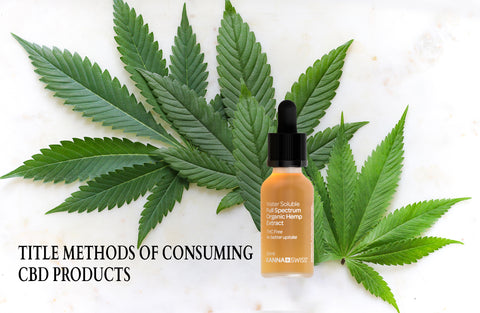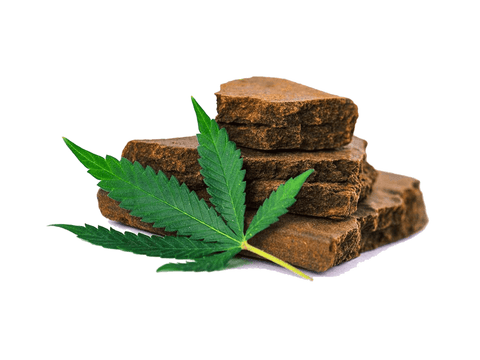All about Cannabidiol (CBD) Products
Cannabidiol (CBD) has been recently been extensively covered in the media, and you may have even seen it as an add-in booster to your post-workout smoothie or morning coffee. Many smoke the Hemp Flowers, but many prefer extracts in the form of concentrate oil or What exactly is CBD? Why is it suddenly so popular?
CBD has many health benefits, and like any other supplements can pose risks that we need to beware. Products containing the compound are now legal in many parts of the world where marijuana is not. In the previous Blogs, we covered many aspects of CBD and how to use it, potential risks, and issues surrounding its legality and in particular the recent Novel Food Act affecting CBD Edibles.
In June 2018, the US Food and Drug Administration (FDA) approved the prescription use of Epidiolex and later followed by the same approval in the UK. In the EU, Germany leads the way to make it possible for physicians to use their discretion to prescribe CBD and get it paid by the Health Insurance rather than ask patients to pay for it privately, and currently allowing more than 40,000 patients to receive the products paid for by the German Health Insurance. The purified form of CBD oil can help to treat two types of epilepsy.
THC is associated with getting high
CBD does not cause the feeling of being ‘high’ that is often associated with hight THC cannabis. THC binds tightly to the CB1 and CB2 nerve receptors in the brain and throughout the body. CBD does not bind to these receptors and instead causes its therapeutic actions through more indirect means. Technically speaking delta-9 tetrahydrocannabinol (THC) is the most active ingredient in marijuana. It is accepted that, CBD is different and unlike THC, it is not psychoactive. This means that CBD does not change a person's state of mind when they use it.
CBD does not cause the feeling of being ‘high’ that is often associated with high THC cannabis. THC binds tightly to the CB1 and CB2 nerve receptors in the brain and throughout the body. CBD does not bind to these receptors and instead causes its therapeutic actions through more indirect means. Because CBD will not make one feel intoxicated, it is, therefore, an excellent option for the users that do not to compromise their mental clarity.
CBD is not marijuana and it is legal?

All CBD products, currently, come either from medical cannabis or industrial hemp plants. It is still illegal in many countries around the world. In the USA and the EU, several states and countries have allowed many products with extracts from Hemp and Cannabis plant to sold legally. However, THC content has to comply with the (<0.2%) levels. Industrial hemp does not fall under these same regulations which means that consumers are free to choose CBD as a natural supplement without worrying about any legal repercussions.
In Europe, currently, many people obtain CBD online without a medical license. The government’s position on CBD is confusing and depends in part on whether the CBD comes from hemp or marijuana. The legality of CBD is expected to change. Today, many health conditions, are treated with pharmaceutical drugs that with long term use can pose severe, unpleasant or dangerous side effects. In some instances, CBD may offer non-toxic, organic and virtually side-effect free, natural benefits for individuals who want to avoid or reduce the number of pharmaceuticals they are taking.
How Cannabidiol (CBD) works

Historical Overview
In 1988, the first cannabinoid receptor was discovered in the brain of a rat. Researchers found that these receptors reacted specifically to THC, and were found primarily found in regions of the brain responsible for mental and physiological processes such as memory, high cognition, emotion, and motor coordination.
Two years later, in 1993, the second cannabinoid receptor was found as part of the immune and central nervous systems. It was then that researchers started to realise that they may have been onto something, but these receptors were only found in rodents, so what’s the big deal right?
Later in 1995, researchers discovered that these receptors, now officially referred to as the CB1 receptor and CB2 receptor, were found not only in rats but within thousands of other species, including humans. Today due to the considerable investment made in this sector and fast-growing knowledge and tons of clinical trials, researchers were able to reverse engineer what they’d discovered. The researchers can now trace back through the metabolic pathways of various cannabinoids, and uncover an entirely unknown signalling system between the CB1 and CB2 receptors in our bodies and receptors found in Cannabis compounds, which they called “endocannabinoids.”
We now know that cannabinoids produce effects in the body by attaching to specific receptors. The two receptors for cannabinoids are called the CB1 receptors and CB2 receptors. CB1 receptors are present throughout the body, but many are also in the brain. one example of an endocannabinoid is anandamide or ‘the bliss molecule.’ This molecule activates the CB1 receptor. The CB1 receptors in the brain deal with coordination and movement, pain, emotions, and mood, thinking, appetite, and memories, and other functions. THC attaches to these receptors.
CB2 receptors are more common in the immune system, and they affect inflammation and pain. Researchers once believed that CBD attached to these CB2 receptors, but it now appears that CBD does not connect directly to either receptor. Instead, it seems to direct the body to use more of its cannabinoids.
The evidence for cannabidiol health benefits
Disclaimer: CBD may benefit a person's health in a variety of ways. Please, note that @CleverBotanics we are not giving medical advice. The following list only is what you can find on other informational websites discussing the benefits.
CBD has been touted for a wide variety of health issues, but the most reliable scientific evidence is for its effectiveness in treating some of the cruellest childhood epilepsy syndromes, such as Dravet syndrome and Lennox-Gastaut syndrome (LGS), which typically don’t respond to anti-seizure medications. In numerous studies, CBD was able to reduce the number of seizures, and in some cases, it was able to stop them altogether. Videos of the effects of CBD on these children and their seizures are readily available on the Internet for viewing, and they are quite striking. Recently the FDA approved the first-ever cannabis-derived medicine for these conditions, Epidiolex, which contains CBD.
CBD is also commonly used to help with anxiety, and for patients who suffer through the misery of insomnia, studies suggest that CBD may help with both falling asleep and staying asleep.
CBD may offer an option for treating specific types of chronic pain but most certainly not all. A study from the European Journal of Pain showed, using an animal model, CBD applied on the skin could help lower pain and inflammation due to arthritis. Another study demonstrated the mechanism by which CBD inhibits inflammatory and neuropathic pain, two of the most challenging types of chronic pain to treat. More research in humans is needed in this area to substantiate the claims of CBD proponents about pain control.
Natural pain relief and anti-inflammatory properties
People tend to use prescription or over-the-counter drugs to relieve stiffness and pain, including chronic pain. And many people believe that CBD offers a more natural and organic alternative.
Authors of a study published in the Journal of Experimental Medicine found that CBD significantly reduced chronic inflammation and pain in some mice and rats. In the past many researchers were suggesting that both high THC level cannabis and the low THC solution should be studied for treating chronic pain.
Reducing smoking and High THC Cannabis adiction
Some promising evidence suggests that CBD use may help people to quit smoking. A pilot study published in Addictive Behaviors found that smokers who used inhalers containing CBD smoked fewer cigarettes than usual and had no further cravings for nicotine. Also a similar review, published in Neurotherapeutics found that CBD may be a promising treatment for people with opioid addiction disorders.
The researchers noted that CBD can reduced some symptoms associated with substance use disorders. These included anxiety, mood-related symptoms, pain, and insomnia, however, clearly a lot more research will be required to validate some of the above claims with a much more scientefic approach than the current way.
Medicinal Cannabis
Definition of the Cannabis-based product for medicinal use in humans is that they contain cannabis, cannabis resin, cannabinol or a cannabinol derivative and are produced for medicinal or therapeutic use in humans. The National Institute of Health and Clinical Excellence is drawing up formal guidance on the prescribing of medicinal cannabis. This is expected to be published in October 2019. Also, the British Paediatric Neurology Association (BPNA) has drawn up interim guidance around epilepsy on behalf of NHS England.
Is cannabidiol (CBD) safe?
Sadly not enough proper research has been done to evaluate the negative aspects of using CBD long term. Many suggest it is just like another supplement, not a medication. and some suggest the side effects of CBD include nausea, fatigue and irritability and yet fail to back it up with scientefic data. So far what I have seen to suggest that it is just a placibo effect rather than actual biological benefit is also unfounded and it is not backed up with any scientefic study.
One quote that I have come across said, "CBD can increase the level in your blood of the blood thinner coumadin, and it can raise levels of certain other medications in your blood by the exact same mechanism that grapefruit juice does." While we have to be very careful not to make medical claims one should also be careful not to make a negative claim unless it is properly validated in more than one case.
Little or no data is available for its interaction with other prescribed medicine and therefore, the only advice I can see on social media is to consult your physician and that start low dosage and only if one is sure of no adverse effect to increase the dosage.
Getting a prescription for medicinal cannabis
According to Epilepsy Society
"Cannabis-based medicinal products can only be prescribed by a specialist. A GP cannot prescribe the medication but could refer you to a specialist.
The specialist will discuss all other treatment options with you first before considering a cannabis-based product.
A prescription for medicinal cannabis would only be given when all other treatment options have been tried or are considered unsuitable, and would only be given if the doctor considers it to be in your best interests."
Epilepsy
The FDA in USA has approved the use of CBD (Epidiolex) as a therapy for two rare conditions characterized by epileptic seizures in 2018. A doctor can prescribe Epidiolex to treat:
- Lennox-Gastaut syndrome (LGS), a condition that appears between the ages of 3 and 5 years and involves different kinds of seizures
- Dravet syndrome (DS), a rare genetic condition that appears in the first year of life and involves frequent, fever-related seizures
The types of seizures that characterize LGS or DS are difficult to control with other types of medication. The FDA specified that doctors could not prescribe Epidiolex for children younger than 2 years. A physician or pharmacist will determine the right dosage based on body weight.
Neurological symptoms and disorders
Findings suggested that CBD may also treat other complications linked to epilepsy, such as neurodegeneration, neuronal injury, and psychiatric diseases.Study, published in Current Pharmaceutical Design, found that CBD may produce effects similar to those of certain antipsychotic drugs, and that the compound may provide a safe and effective treatment for people with schizophrenia. However, further research is necessary.
Fighting cancer
According to Macmillan "Some studies have looked at whether using cannabis may increase the risk of developing cancer. These have produced different results. Some research has shown that using cannabis may protect against cancer. But other studies have shown an increased risk of cancer."
"It is still unclear whether using cannabis has any anti-cancer effects. But there is some evidence that the chemicals in cannabis might help with symptoms such as nausea and pain. For example, some drugs that have been developed using the chemicals in cannabis have been effective in treating sickness caused by chemotherapy, or improving a person’s appetite. But these studies have had mixed results when used in clinical trials. Because of the mixed results, the general feeling of experts is that there needs to be more research into the chemicals found in cannabis and their possible benefit."
Authors of a review published in the British Journal of Clinical Pharmacology found evidence that CBD significantly helped to prevent the spread of cancer. However, much more research is required.
Anxiety disorders
According to healthline.com
"CBD oil is thought to work with a brain receptor called CB1. Receptors are tiny proteins attached to your cells that receive chemical signals from different stimuli and help your cells respond. However, the exact way CBD affects CB1 is not fully understood. One thought is that it alters serotonin signals. Serotonin is one of your body’s chemicals and plays a role in your mental health. Low serotonin levels are common in depression. Not having enough serotonin can also cause anxiety in some people"
Doctors often advise people with chronic anxiety to avoid cannabis with THC, as it can trigger or amplify feelings of anxiousness and paranoia. However, authors of a review from Neurotherapeutics found that CBD may help to reduce anxiety in people with certain related disorders.
In 2011, a human study on CBD and its effects on Social Aanxiety Disorder SAD was published in the Journal of Psychopharmacology. Participants were given either an oral dose of 400 milligrams of CBD or a placebo. The results showed that those who took the CBD dose experienced overall reduced anxiety levels. Some studies since have not found this to be conclusive; Below are some other related disorders to consider;
- post-traumatic stress disorder
- general anxiety disorder
- panic disorder
- social anxiety disorder
- obsessive-compulsive disorder
More definitive research is required to show evidence to conclusively link CBD to adverse effects.

CBD as a complementary therapy
The majority of the evidence available suggests that CBD and cannabis therapies may complement many ailments and here is a short list.
Type 1 diabetes: We know that Type 1 diabetes results from inflammation that occurs when the immune system attacks cells in the pancreas. Research published in 2016 by Clinical Hemorheology and Microcirculation found that CBD may ease this inflammation in the pancreas. This may be the first step in finding a CBD-based treatment for type 1 diabetes. A paper presented in the same year in Lisbon, Portugal, suggested that CBD may reduce inflammation and protect against or delay the development of type 1 diabetes.
Cancer treatment: Many people who are going through cancer treatment experience nausea and loss of appetite. These symptoms can make it difficult for them to maintain a healthy weight. Ingested cannabis that delivers THC and other cannabinoids to the bloodstream may help stimulate the appetite, but there is no evidence that CBD alone can have this effect.
Pain Relief: Many conditions have associated pain or treating an ailment may result pain and if it is due to inflammation, pressure on internal organs, or nerve injury. When the pain is severe, it can even become resistant to opioids, which are powerful pain relievers. CBD indirectly acts on the CB2 receptors, which may help with widespread pain relief by reducing inflammation. THC acts on the CB1 receptors, which may be helpful for pain resulting from nerve damage.
Acne treatment: Acne is probably the most common skin condition in humans. Most people deal with acne at some point in their lives, be it occasionally or on a daily basis. CBD oil may help reduce various types of acne because of its ability to adjust how the body creates sebum. Sebum is a waxy, oily substance the skin makes. CBD oil also has anti-inflammatory properties. A 2014 study explored the effects of CBD on human sebocytes, which are the cells that create sebum. The researchers found that the CBD prevented these cells from creating too much of the oily sebum.
Eczema and psoriasis: The anti-inflammatory compound may help reduce potential triggers of eczema and psoriasis in some people. CBD may also help balance the immune system, which influences these conditions. However, more direct research is necessary.
Alzheimer's disease
In Alzheimer’s research, the recent studies, CBD has been shown to reduce or remove the impact of inflammation, oxygen buildup and brain cell decline. Initial research published in the Journal of Alzheimer's Disease found that CBD was able to prevent the development of social recognition deficit in participants. This means that CBD could help people in the early stages of Alzheimer's to keep the ability to recognize the faces of people that they know. This is the first evidence that CBD may slow the progression of Alzheimer's disease.
Legality
Cannabis is legal for either medicinal or recreational use in some countries. Many countries approve CBD oil as a hemp product but not the general use of medical marijuana. Generally, the CBD legislation in both the US and EU is confusing, even in many countries that have legalised some aspect but then are rather vague with other elements.
Anyone considering CBD oil should speak with a local healthcare provider. They can provide information about safe CBD sources and local laws surrounding usage.Also, research local laws.
Side effects of other uses of CBD
There is often a lack of evidence regarding the safety of new or alternative treatment options. Usually, researchers have not performed the full array of tests. It is important to note that researchers have linked marijuana use during pregnancy to impairments in the fetal development of neurons. Regular use among teens is associated with issues concerning memory, behavior, and intelligence. The product should have lowe THC components and backed up with third party lab reports
How to use

There are a large number of blogs and publications on the best way to use CBD, please refer to them for more detailed review. However there are many different ways to relieve various symptoms.If a doctor prescribes it to treat LGS or DS, it is important to follow their instructions and study the details of the CBD-based products come in many forms.
Some can be mixed into different foods or drinks or taken with a pipette or dropper. Others are available in capsules or as a thick paste to be massaged into the skin. Many products are available as sprays to be administered under the tongue.

Blog by Sal @CleverBotanics
Join us at Instagram
And here is our Twitter








